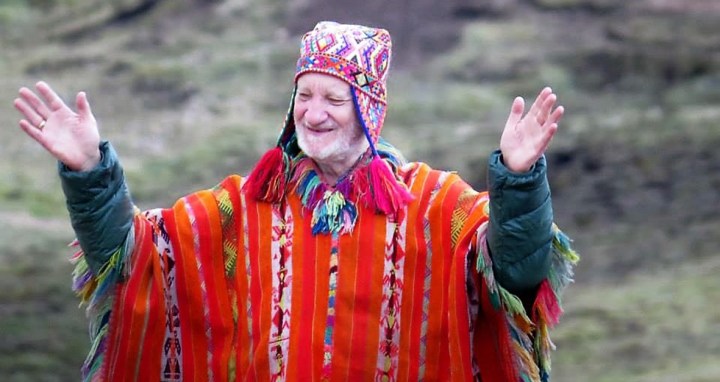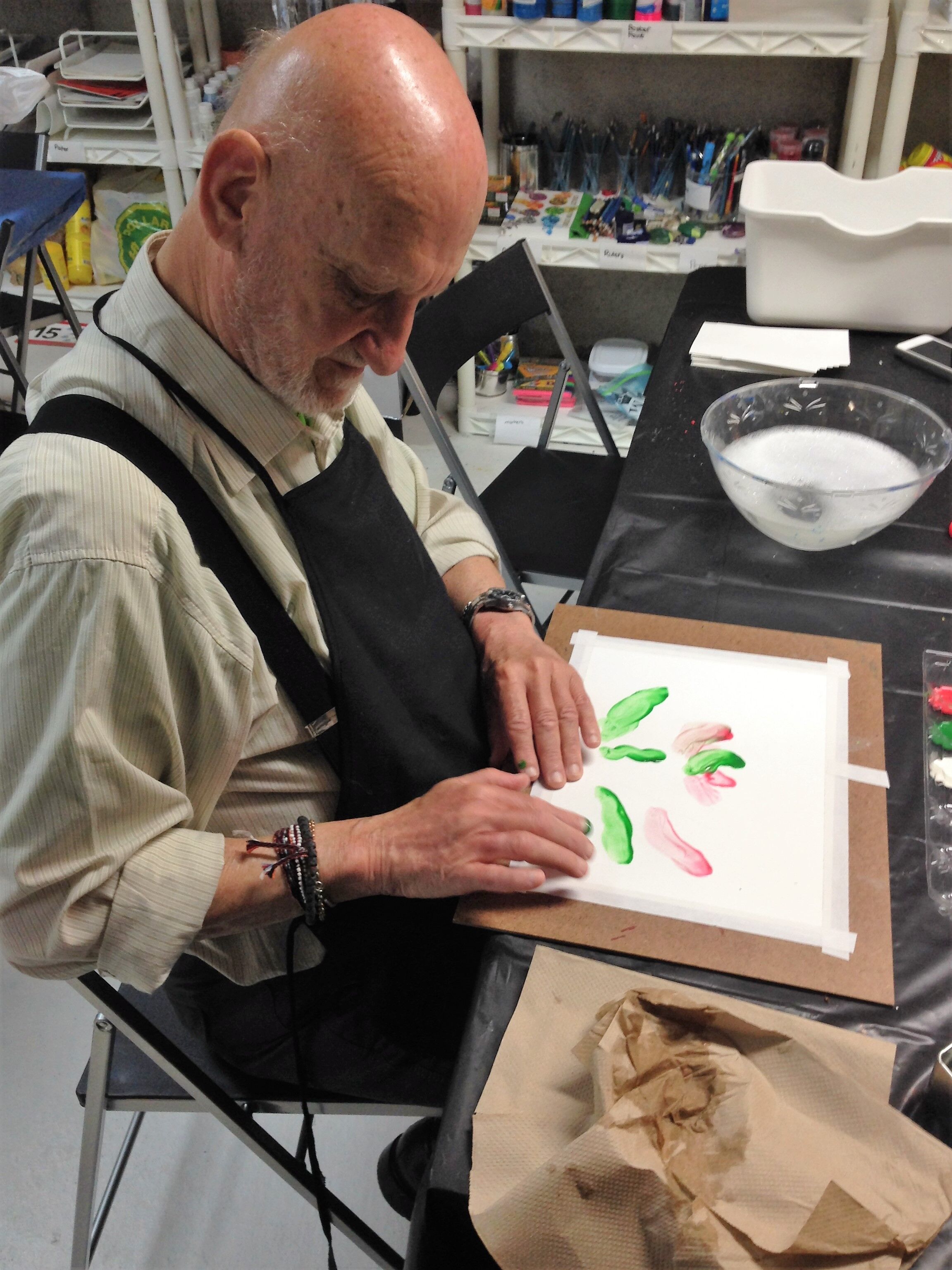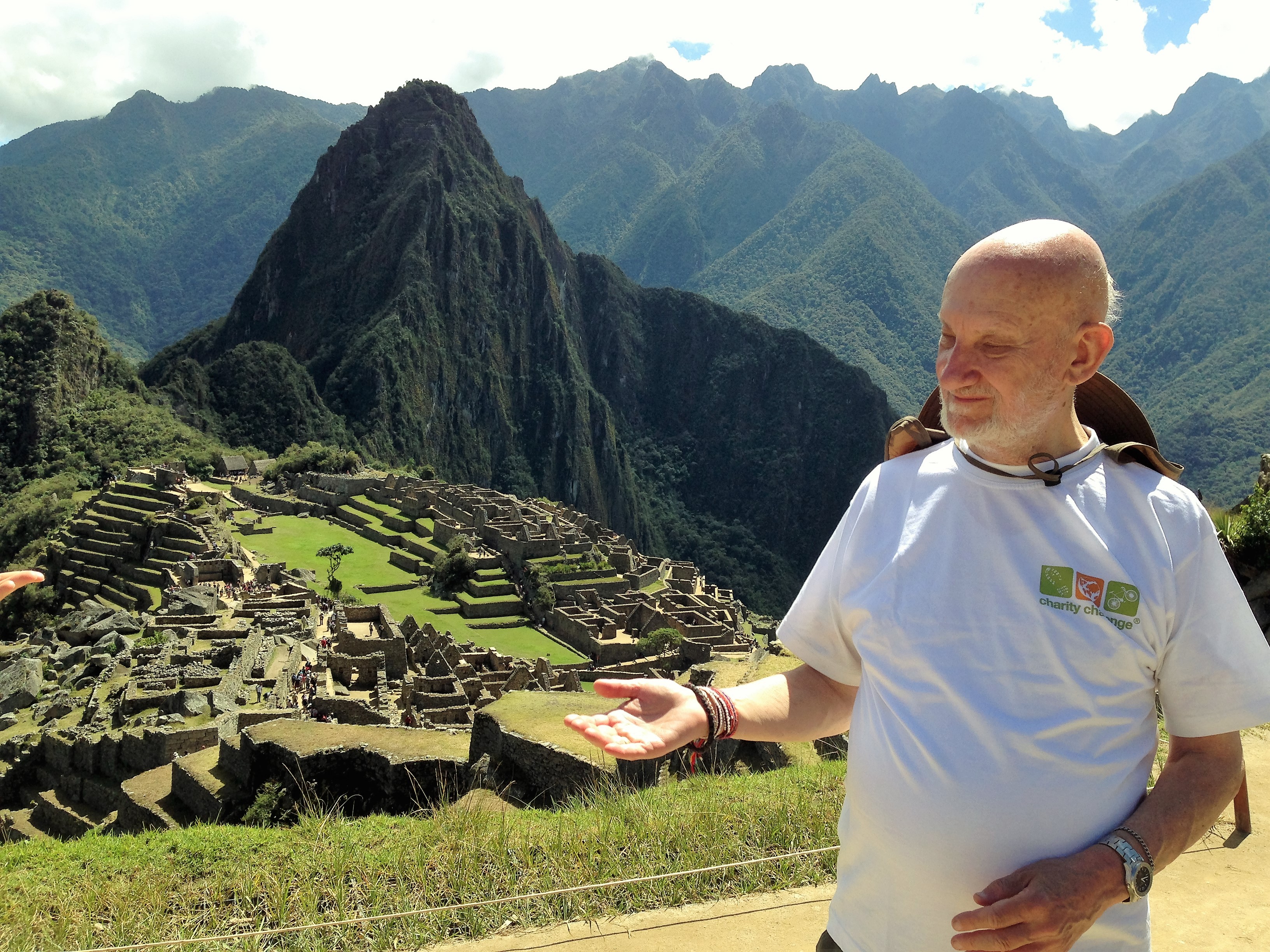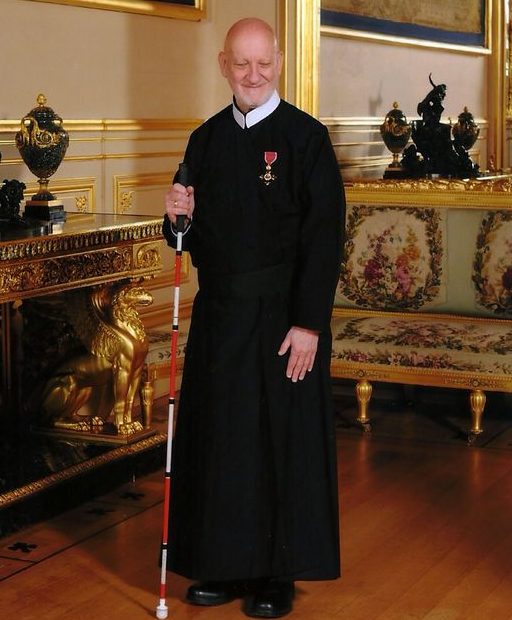PROFILE
‘There is always a way through’ – climbing Machu Picchu deaf and blind at the age of 72

We love the classic storyline of the underdog who dreamed a dream but was told it was impossible because of some in-built physical, psychological or cultural impediment. And yet, against the odds, they achieve it. Cyril Axelrod’s life has not been a fictional story plot, it’s been an epic 80-year struggle against accepted convention.
Born completely deaf in Joburg in 1942 to Lithuanian immigrants of very modest means, Axelrod’s deafness remained undiagnosed until the age of three. His was a strictly Orthodox Jewish home and, despite the severe communication challenges, his parents managed to impart to him a deep knowledge of Jewish rituals and symbolism. His lifelong journey into spirituality was awakened and, not long after his Bar Mitzvah at the age of 13, Axelrod already felt the call to become a rabbi. His dream was to serve the Jewish deaf community in Joburg.
Not for the last time in his life his ambitions were thwarted by limitations imposed on him by others. Although very sympathetic to Axelrod’s dream, the Chief Rabbi explained that, according to the Laws of Moses, disabled people could not become rabbis. Although Axelrod eventually converted to Catholicism and was ordained as a priest, it was not a negative reaction to this rejection. In fact, Axelrod’s deep attachment to his Jewish identity remains as strong as ever at the age of 80. “To me it did not feel like choosing to give up one faith for another,” he writes. “I have within me, even now, an acceptance of both faiths as equal, harmonious and complementary; something which maybe is beyond the comprehension of most Jews and Catholics.”

Cyril Axelrod. Image: Supplied by the author
His seamless spiritual integration of his Jewish and Catholic identities is most poignantly expressed through his relationship with his mother, Yetta. Heartbroken at the loss of her son from Judaism she initially cut off contact with him, as did many of his other relatives. But on the eve of his ordination on 28 November 1970 at the Cathedral of Christ the King in Johannesburg – the only the third deaf Catholic priest in the world – she had a change of heart and was present at the ceremony. One of his first acts as a priest, in a packed church in Rosebank, was to bestow the Jewish blessing on his mother in Hebrew. In a private audience with Pope Paul VI at the Vatican in 1971, the pontiff, reflecting on the acceptance of Axelrod’s conversion to Catholicism by his strictly Orthodox Jewish mother, “asked (him) to convey a message to (his) mother. He said he admired her as a Jewess, presenting her only son to God, and wished to thank her for her gift to the Church.”
Axelrod’s ability to resolve the many dichotomies of his life is perhaps what makes him such a powerful inspiration. “I grew up white in a black community, Jewish among Catholics, deaf in a hearing world and my blindness at times separating me from my deaf community.”
In late 1970, when assigned to teach at a school in King William’s Town (now Qonce), he witnessed first-hand the added struggle that apartheid visited upon deaf black people. The children were not allowed to mix with deaf people of other races and were only allowed home to see their families twice a year. This created a communication barrier between the children and their parents; many chose not to go home at the end of their elementary education, electing instead to maintain contact with their deaf peers with whom they could communicate.
In October 1978 he founded a large educational complex in Soweto (the original site was at St Martin’s School in North Soweto) catering to more than 500 deaf students as well as a hostel for deaf migrant workers in Hammanskraal; he travelled to remote villages in Zimbabwe, Mozambique, Swaziland and Lesotho to minister to large gatherings of deaf people.
Axelrod’s life mission has been to show disabled and abled people alike that disabilities should not be a barrier to the basic human experiences of gaining knowledge and contributing meaningfully to society; he believes this can only be done if a disabled person feels support from their community to build confidence and self-worth. Apartheid made it impossible for the underprivileged deaf to connect with and grow through broader deaf communities: “It left them with anxiety, frustration, a feeling of worthlessness and, above all, crippling poverty and the constant threat of eviction from their ‘subeconomic’ homes,” he says.
But society’s marginalisation of the deaf wasn’t confined to South Africa. In Macau, South East Asia, where Axelrod worked for 11 years, between 1989 and 2000, a disabled child was considered “bad luck” and an embarrassment to their families; they were often kept indoors and away from society, keeping their existence a secret from the authorities. There, he established, in 1993, the Macau Deaf Association as well as a deaf community centre, the Kai Chung Centre, learning to communicate in Mandarin, Cantonese and Portuguese through sign language, Braille and fingerspelling.
While in Macau, in 1980, Axelrod’s vision deteriorated – at the age of 38 he had been diagnosed with Usher Syndrome, which causes deafness or hearing loss and the eye disease retinitis pigmentosa. By the time he left Asia for the UK he had just 3% vision.
In the UK he went through a three-month intensive deaf-blind rehabilitation course, learning how to operate kitchen appliances through raised Braille dots, how to arrange his cupboard so he could coordinate his clothes and how to communicate using a wide variety of electronic gadgets such as cellphones and laptops.
Axelrod is an avid gardener, a qualified masseur and aromatherapist, and an artist, using an ingenious technique involving string and Braille-marked paints; he paints through touch and memory, capturing images of his life experiences before he went blind. He also uses smell and touch to create a picture in his mind of what each flower in his garden looks like before transferring it onto the blank canvas.

Cyril Axelrod finger drawing. Image: Supplied by the author

Cyril Axelrod at Machu Picchu. Image: Supplied by the author
At 72, in August 2014, Axelrod was invited to join a group on an expedition to Machu Picchu, to spread awareness about deafblindness. It took Axelrod and his guide, Hester Holliday, eight days to ascend and another seven to descend the Andes mountains to the citadel. He speaks about his feet “growing eyes” as he climbed with a group of mountaineers who couldn’t sign or fingerspell. Together they devised a series of signals to indicate “up”, “down”, “flat”, “steep” and “jump”.
“There is always a way through or over any obstacle, however unexpected, in any aspect of my life.”

Cyril Axelrod was awarded an OBE in 2013. Image: Supplied by the author
In 2013, Axelrod was awarded an OBE for his contribution to the worldwide deafblind community. DM/ ML
Cyril Axelrod will be talking at the Jewish Museum on Tuesday, 25 October 2022 (to book your ticket, click here) and on Thursday 27 October at Shangrila Holistic Centre in Gardens, Cape Town. To book your place e-mail: [email protected]
Visit Daily Maverick’s home page for more news, analysis and investigations


















What an amazing story. The physically blind leading the spiritually blind. The poverty of traditional religion, expressed in this instance by Jewish Rabbinical thinking that “God” can somehow become offended by, and is therefore incapable of accepting a deaf Rabbi (what on Earth!?!…) is appalling. Even more disturbing, his mother, so spiritually brainwashed and emotionally bankrupt, as to go against every convention of the natural world by rejecting her own son, is a living testament to organised religion’s slow poisoning of even the most sacred and dearly held relationships. Strange how mere men get to pontificate about what “God” likes and doesn’t like!
Inspiring!